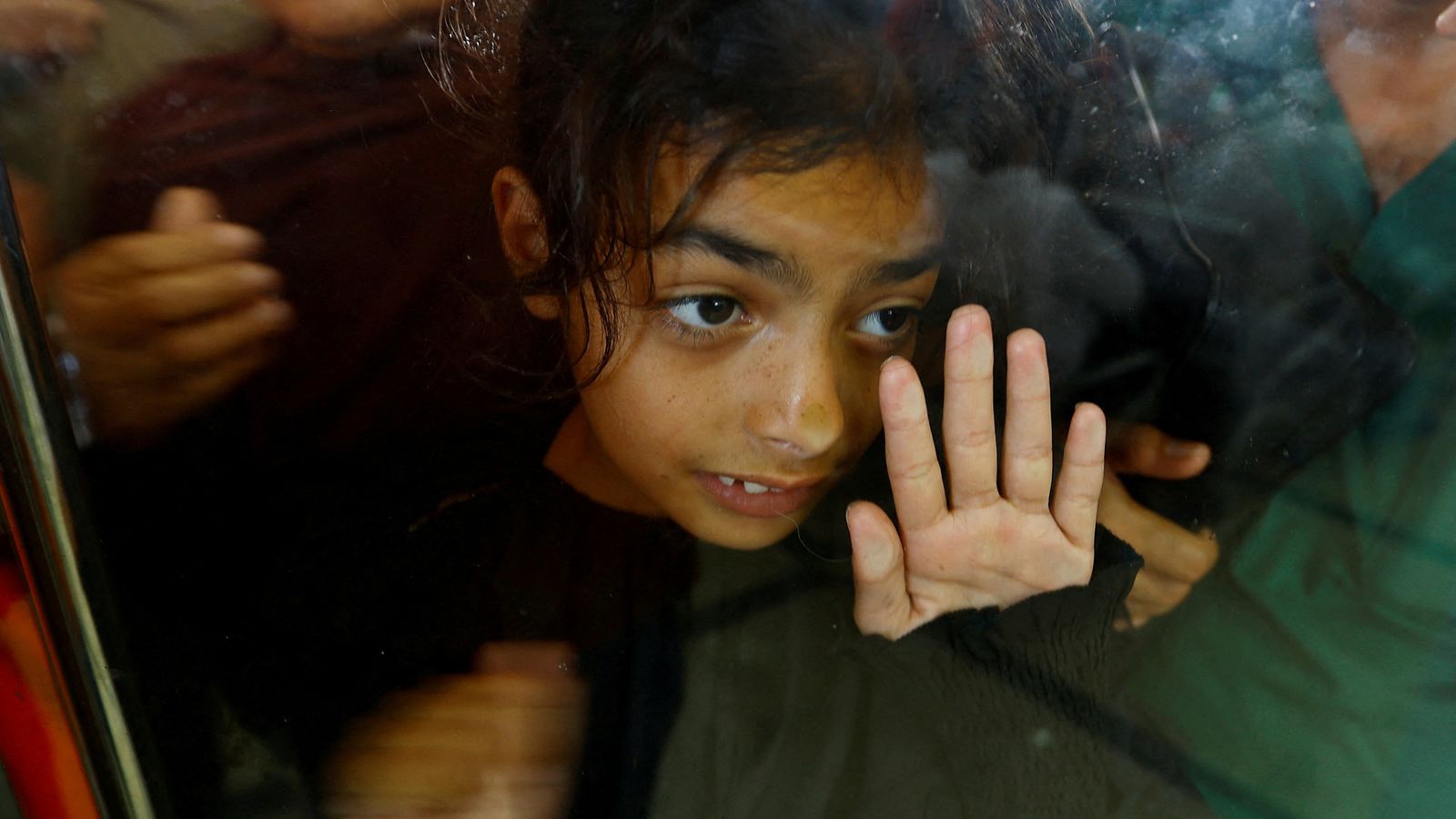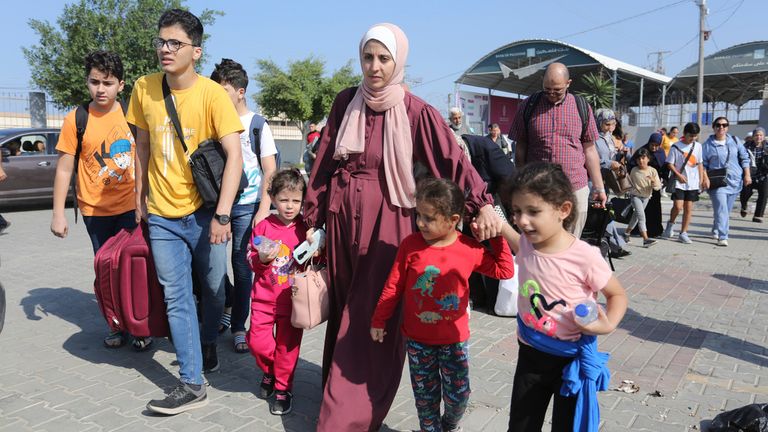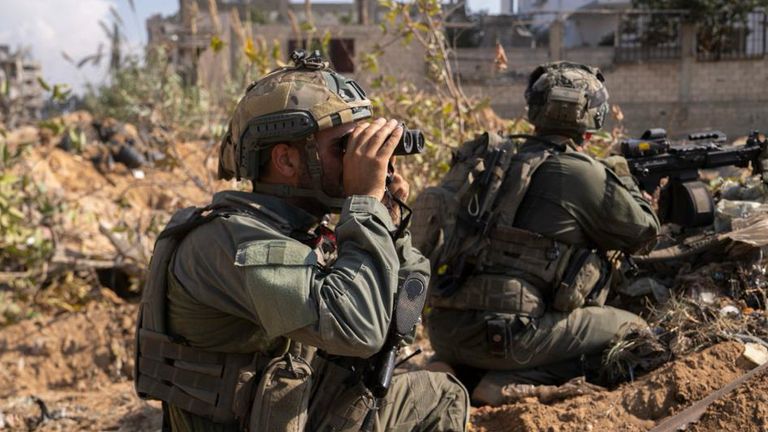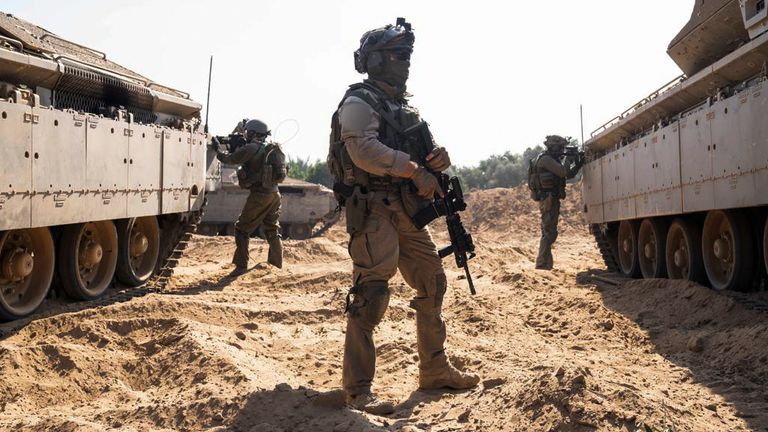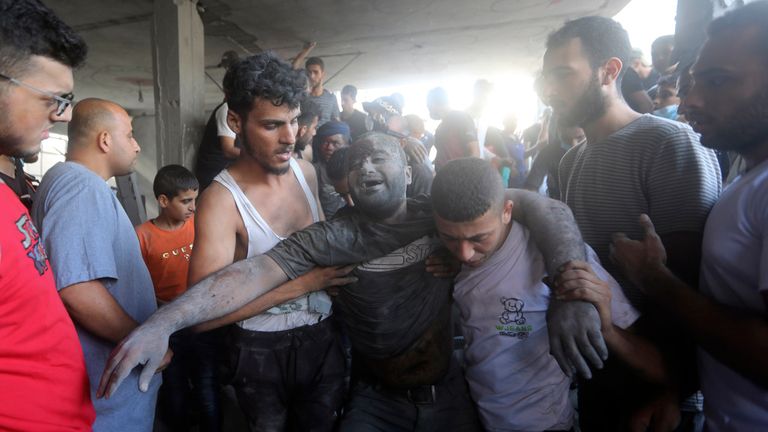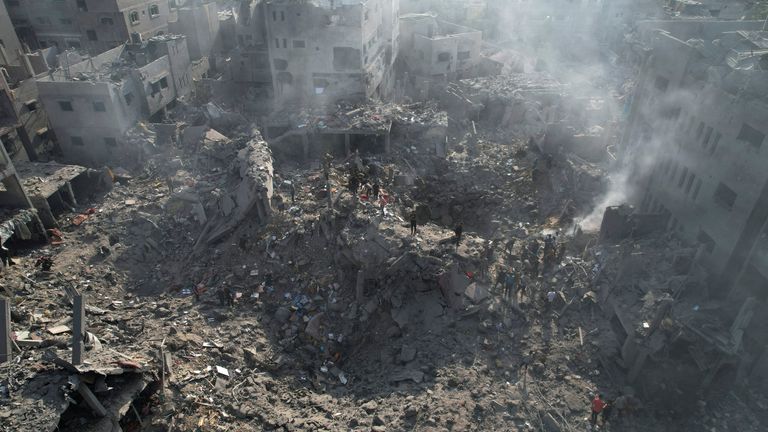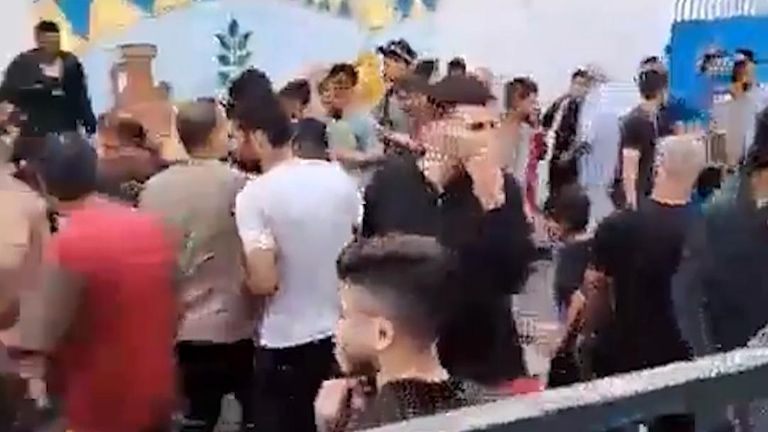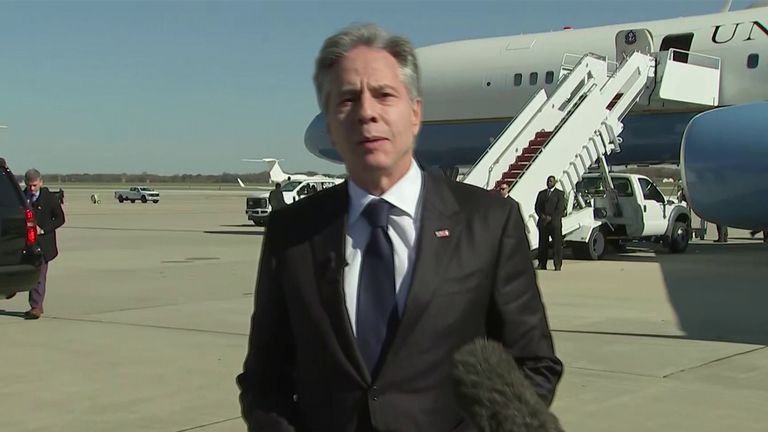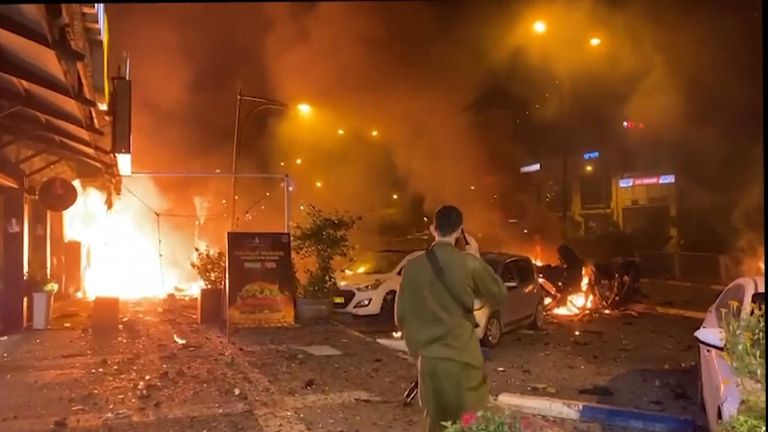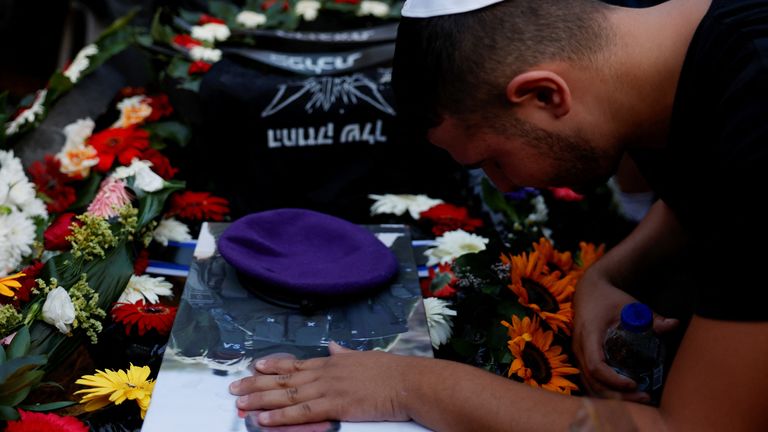Nearly 100 Britons are listed among foreigners and Palestinians who will be allowed to leave Gaza and cross into Egypt on Friday.
The Palestinian Border Authority published a list that includes 92 British nationals among 127 names.
Two Irish dependants, one Moroccan, 31 Palestinians and one Palestinian dependant are also set to leave.
Israel-Gaza latest – live updates
Egypt has said it will not accept an influx of Palestinian refugees in case Israel stops them returning after the war.
However, in the last few days, Palestinians with foreign passports have been allowed over Gaza‘s southern border at the Rafah crossing.
Some 342 Palestinians with foreign papers and 42 others crossed on Thursday, said the Palestinian Border Authority.
It followed around 400 on Wednesday – when an unspecified number of British nationals were also allowed over for the first time.
The crossings come as Israel continues attacks as it aims to destroy Hamas after last month’s terror attack.
Troops completely encircled Gaza City on Thursday, said the country’s military, as it steps up ground operations after weeks of aerial attacks.
Chief of staff Herzi Halevy said troops were fighting “face-to-face” battles in “built-up, dense, complex areas”.
He said they were inflicting heavy losses on Hamas and destroying its infrastructure.
On Thursday, planes dropped leaflets telling people to evacuate the Shati refugee camp, near Gaza City’s centre.
“Time is up,” they read, warning that strikes “with crushing force” against Hamas were imminent.
Casualties are expected to rise as the fighting gets further into the densely packed streets of Gaza City
At least 20 people were also killed on Thursday when a school-turned-shelter was damaged in the Jabalia refugee camp in northern Gaza, according to the United Nations.
It said four of its shelters had been hit in the last 24 hours.
Fifteen also died after an airstrike hit a residential building in the the Bureij refugee camp a few miles south of Gaza City, a civil defence spokesperson said.
It happened in the southern zone where Israel has told people to flee – but which has been repeatedly hit.
Israel says it takes great care to avoid civilian casualties but that Hamas deliberately embeds itself among the population.
More than 9,000 Palestinians have now died in less than a month – with 32,000 wounded, according to Gaza’s health ministry.
The offensive was launched after Hamas murdered more than 1,400 Israelis and kidnapped more than 200 in its cross-border attack 7 October.
US secretary of state Antony Blinken is heading back to the region on Friday to try to push President Biden’s suggestion of a humanitarian pause.
He will hold talks in Israel and Jordan but faces a hard time convincing Benjamin Netanyahu to stand down his forces.
The Israeli prime minister has not responded directly to Mr Biden’s idea but previously dismissed calls for a ceasefire.
Speaking on Thursday, he insisted: “We are advancing… Nothing will stop us.”
The hope behind a pause is to let more foreign nationals to leave while also allowing more aid trucks to enter.
Gaza’s 2.3 million people are facing crippling shortages of food and water, while hospitals are on the verge of collapse and without critical supplies.
Despite strong support among Western governments for Israel’s right to hit back at Hamas, there is growing unease at the number of deaths – with key questions including whether the counterattacks are proportionate.
Read more:
British surgeon out ‘at last’ after being trapped in Gaza
Analysis – How many people have died in Gaza?
On Thursday night, Israel’s military spokesman Brigadier General Daniel Hagari reiterated its mission was only to wipe out Hamas.
“I want to make something very clear,” he said in a recorded video.
“Israel is at war with Hamas. Israel is not at war with the civilians in Gaza.”
Twenty one Israeli soldiers have been killed in Gaza since the start of the ground offensive.
Meanwhile, continued rocket fire from Gaza and skirmishes with Lebanon’s Hezbollah militants have forced an estimated 250,000 Israelis to evacuate border towns in the north and disrupted life for millions.
